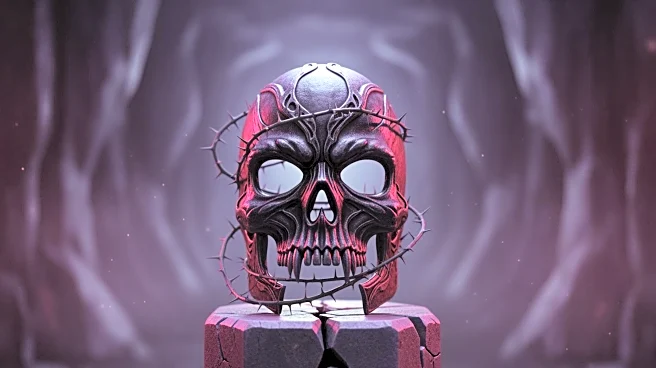What is the story about?
What's Happening?
The rise of artificial intelligence (AI) is significantly impacting the job market, particularly affecting recent graduates. Olivia Fair, a 2019 graduate, has struggled to secure employment despite applying for over a hundred jobs. The demand for traditional entry-level positions, such as transcription, has decreased as AI takes over tasks that previously required human oversight. Laura Ullrich, director of economic research at Indeed, reports a 6.7% decline in job postings, with a notable 36% drop in the tech sector compared to pre-pandemic levels. This trend, although exacerbated by AI, began before the technology became prevalent. The post-pandemic hiring boom in tech has led to current job cuts as companies adjust to an uncertain economic environment. MIT labor economist David Autor highlights the fear of job displacement due to automation but emphasizes the continued need for human judgment and expertise.
Why It's Important?
The integration of AI into the workforce presents both challenges and opportunities. While AI can perform tasks across various sectors, it also raises concerns about job displacement, particularly for roles involving screen work like translation and graphic design. However, jobs requiring empathy, creativity, and physical presence, such as those in healthcare and education, are less likely to be affected. The decline in job opportunities for recent graduates underscores the need for adaptability in the workforce. As AI continues to evolve, it may create new job categories, potentially in fields like renewable energy or emerging medical specialties. The situation calls for young job seekers to be proactive, leveraging internships and professional networks to enhance their employability.
What's Next?
As AI technology advances, the balance between human labor and automation will remain a critical issue. Companies may continue to adjust their hiring strategies in response to economic uncertainties and technological advancements. Young professionals are encouraged to focus on developing skills that complement AI capabilities, emphasizing creativity and human-centric attributes. The ongoing dialogue about the future of work will likely influence educational and training programs, preparing the workforce for a landscape where AI plays a significant role.
Beyond the Headlines
The ethical and cultural implications of AI in the workforce are profound. The shift towards automation raises questions about the value of human labor and the potential for economic inequality. As AI takes on more tasks, the importance of human creativity and emotional intelligence becomes more pronounced. The conversation around AI and employment will likely influence public policy and corporate strategies, shaping the future of work in the U.S.
















